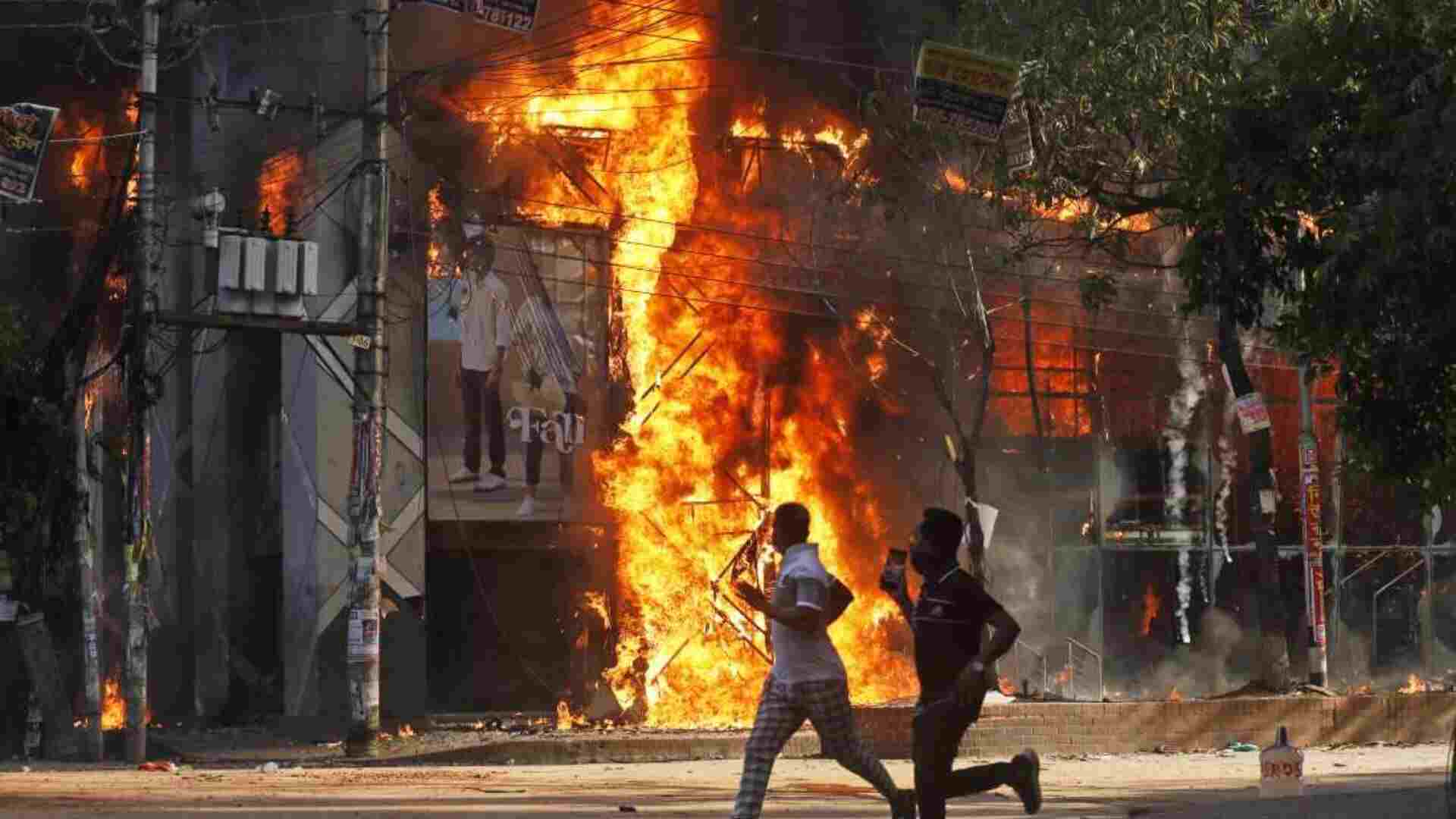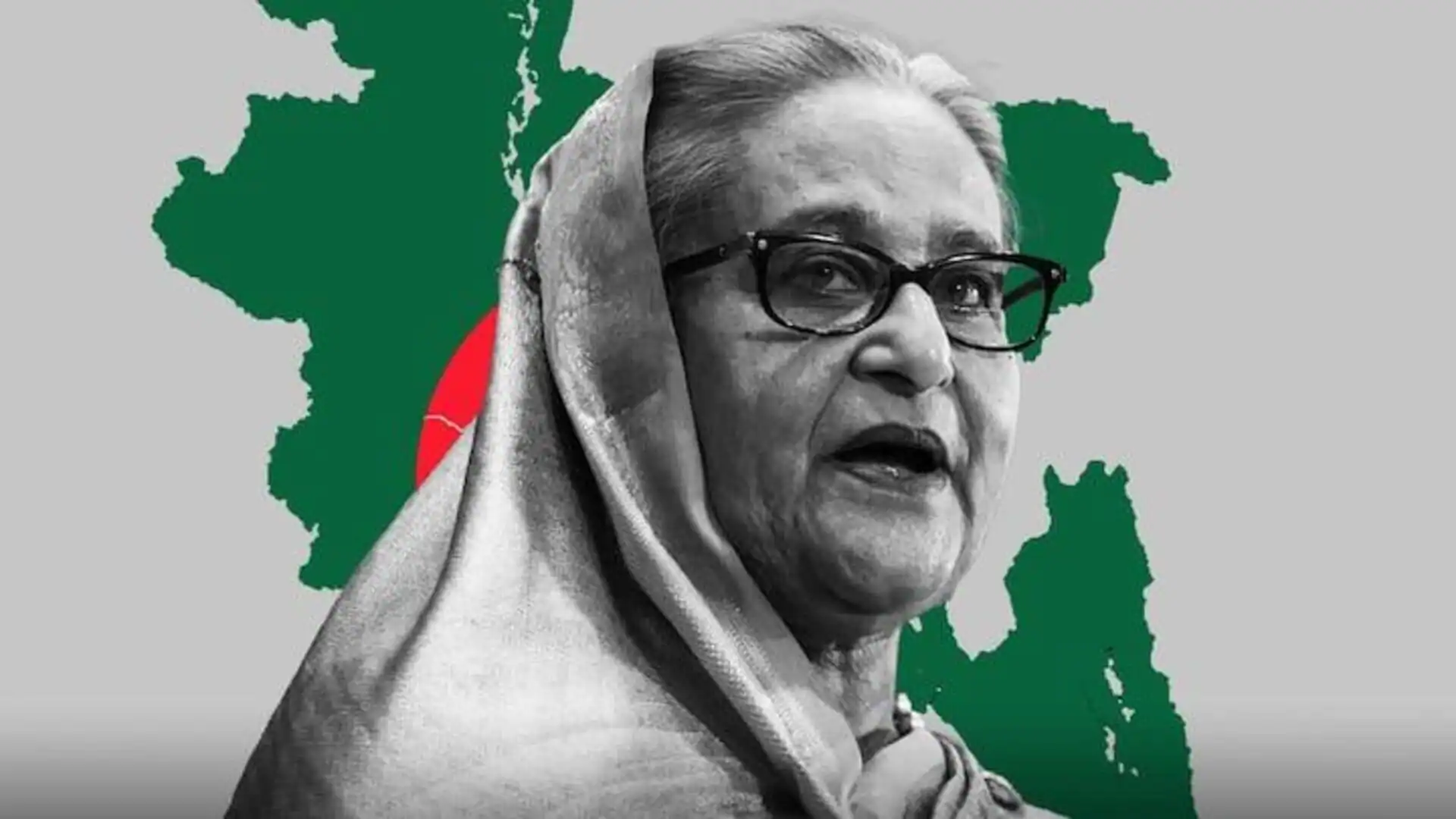Sheikh Hasina’s Bold Extradition: 5 Major Risks
Bangladesh's Request of Sheikh Hasina's Extradition: Political Turmoil, Legal Challenges, and Regional Repercussions in South Asia

Bangladesh’s interim government has formally requested India to extradite the country’s former Prime Minister, Sheikh Hasina. This is a significant reversal of a decision taken on December 23, 2024, by a diplomatic note issued when the nation was amid political turmoil following her ouster from office earlier this year. Both countries are now in the spotlight internationally due to the intense discussion this scenario has generated on legal, political, and human rights problems.
The Ousting of Sheikh Hasina: A Prelude to Political Upheaval
Sheikh Hasina, the head of the Awami League, was Prime Minister of Bangladesh for over 16 years and one of the most influential political leaders in history; however, her period in office has witnessed serious allegations of authoritarianism, corruption, and gross human rights abuses. In August 2024, mass student protests rocked Bangladesh due to growing perceptions of economic mismanagement and political repression. These protests finally compelled her to collapse her administration, which resulted in her fleeing the country for asylum in India on August 5.
Formation of the Interim Government
After Hasina left the government, an interim government was formed under Nobel laureate Muhammad Yunus. This new government has to deal with the problems it faces in re-establishing democratic order and redressing the ills of the people of Bangladesh, thus working on accountability and justice. This agenda is not possible without the decision to prosecute Sheikh Hasina and her colleagues for crimes committed against the people during her watch. These include corruption and abuse of power, notably crimes against humanity in actions against dissenting voices and voices of opposition.

The Diplomatic Note: Bangladesh’s Request to India
On December 23, 2024, the Bangladesh interim government formally sent an official communication to India inquiring into the extradition of Sheikh Hasina. The diplomatic note reiterated the urgency of her return to serve through judicial processes and to provide her account for her conduct when she was a ruler.
“The note indeed does reflect the commitment of this government to upholding the rule of law,” stated Bangladesh Foreign Affairs Adviser Md Touhid Hossain.
The Ministry of External Affairs of India accepted receipt of the note but decided not to take a decision in haste. It opined that the subject matter is too sensitive to be decided now as it has to do with asylum seekers and relationships between nations.
Legal Complexities and International Law
It raises complex legal questions over the demand for extradition. International conventions and bilateral treaties form the basis of Bangladesh and India extraditing criminals. This will be the most politicized and legally contentious case of extradition from Bangladesh to India. However, the two countries have cooperated before, as India did with Bangladesh during its liberation in 1971.
Many of these organizations have criticized the apparent unfairness of any possible trial Sheikh Hasina could be subjected to in a country ready to extradite her. Human Rights Watch is among such organizations. It has asked for open procedures and international standards on her case. Additionally, the Bangladesh government was also asked to repeal the death penalty as a form of punishment for some of the charges against Hasina.

Political Implications in Bangladesh
Many believe that only after the caretaker government successfully deports Sheikh Hasina from London can this nation regain its accountability and public trust in its political systems. However, this step would further polarize the country’s politics. Since the Awami League still has quite a significant following, targeting its leader would further incite the already enraged soldiers.
However, Hasina’s supporters say that allegations against her are politically motivated with the purpose of bringing her under their control and undermining the Awami League’s political machinery, which has been summoned for international intervention for her security and fair treatment.
Regional and Global Reactions
The extradition request has evoked mixed reactions from regional and international players. Since the implications are directly related to regional stability, South Asian neighbours like Pakistan and China are watching this development closely. India, for instance, is in a diplomatic dilemma. It would like to maintain its reputation as a haven for political asylum seekers but has to weigh the long-term implications for its relations with Bangladesh.
The United States and the European Union have called on Bangladesh to ensure that legal proceedings against Sheikh Hasina are democratic and by human rights standards. The two superpowers have also urged the temporary administration to put peace and stability ahead of personal grudges.

India’s Dilemma: Balancing Asylum and Diplomacy
India plays a significant role in this unfolding play. New Delhi cemented its time-tested relationship with Bangladesh, which started in the Liberation War, by welcoming Sheikh Hasina. It is put in a very tricky position to be approved for extradition. It may strain the two countries’ relations, and if accepted, it would interfere with Bangladesh’s internal affairs.
India’s geopolitical policy in South Asia, the extradition statute, and the public’s perception in and abroad will likely influence its decision. Bangladesh would ask India to ensure Hasina’s safety and that justice is not discriminatorily administered.
Human Rights Concerns
Even the likelihood that Sheikh Hasina may get extradited has already given significant concerns for human rights, as her trial is indeed a political farce, with the judiciary of Bangladesh already losing its credibility. The interim government will face the challenge of democratic principles in this high-profile case.
International monitors have further called on India to ensure that any decision related to Hasina’s extradition does not breach international human rights law. This fact has been drawn to emphasize the protection of persecution through asylum and non-influenced judicial procedures because of political power.

Conclusion: A Defining Moment for Bangladesh
It will be a historic event regarding Sheikh Hasina’s extradition from Bangladesh. The subject matter would be engraved deep through this period of transition in forming a new government in this country. Bangladesh would, hence, determine the stability level as well as the international acceptance level and the democratic turn.
For India, this decision is almost as decisive as it was in the extradition of Sheikh Hasina. It has to balance judicial compulsion, humanitarian concerns, and other diplomatic priorities. This will play only with these weeks playing out in its outcome to determine and set how things would mould South Asian politics.




